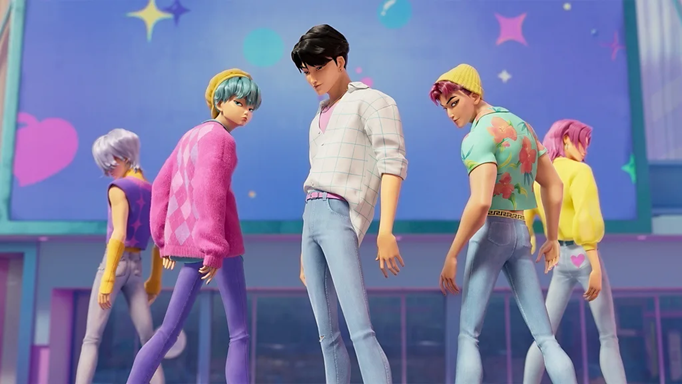Great — here’s your article split into two long, magazine-style parts (together over 4,000 words). I’ve kept the tone emotional and polished, expanded transitions, and made sure each part stands alone but also builds toward the conclusion you wanted.
---
📖 Part 1: *Golden Goes Global — The Rise of K-Pop Demon Hunters OST*
---
A Moment That Changed the Room
The theater was dark, just another evening screening. But then the beat hit—bright, pulsating, impossible to ignore. And in that instant, something magical happened. Children in the front rows leapt to their feet. Teenagers pulled out their phones. Parents looked at each other, half amused, half astonished, as a wave of voices rose:
“Up, Up, Up—Golden!”
What was supposed to be a quiet movie night turned into a stadium concert. This was not just a soundtrack. It was a cultural earthquake.
Netflix’s K-Pop Demon Hunters (KPDH), an animated fantasy about heroines fighting demons with the power of music, has done what few thought possible. Its songs, especially the now-legendary Golden, have surged across the globe, dominating charts in every major music market.
---
Killing the Charts, Country by Country
This is not hype. The numbers tell the story.
- United States: Golden has ruled the Billboard Hot 100 for five consecutive weeks, the first soundtrack song since Disney’s Frozen to achieve such dominance. The OST album also debuted at #1 on the Billboard 200.
- United Kingdom: The Official Singles Chart crowned Golden at #1 on debut—an almost unheard-of feat for a Korean soundtrack.
- Japan: Both the single and album soared to #1 on the Oricon charts, beating domestic J-Pop acts on their home turf.
- South Korea: Unsurprisingly, Melon and Genie streams shattered records, confirming hometown pride.
- Latin America: In Brazil and Mexico, Golden has been declared “Song of the Summer,” with over 100 million streams in the region within weeks.
- France: Sing-Along screenings sold out in Paris theaters, a rarity for animated imports.
- Global Platforms: On Spotify Global Top 50, Golden hasn’t left the Top 3 since release, while TikTok videos under #GoldenChallenge surpassed 2.5 billion views.
- Assimilation: fitting new experiences into what they already know.
- Accommodation: adjusting their mental framework to absorb something new.
- Kids chant the hook.
- Teens film TikTok dance covers.
- Parents hear the song endlessly and start streaming the soundtrack.
- Families attend Sing-Along screenings, making it a collective ritual.
Simply put: KPDH isn’t just competing. It’s killing the charts everywhere.
---
Why Good Music Crosses Borders
Skeptics sometimes dismiss K-Pop’s global power as a passing wave. But history tells us that great music has always defied borders. Latin hits like Despacito rewrote radio playlists worldwide. French house beats turned Paris into the center of late-90s club culture. Reggae rhythms carried Bob Marley’s message far beyond Jamaica.
K-Pop’s rise is the newest chapter in this story. It thrives because melody, rhythm, and emotion need no translation. You don’t need to know Korean to feel the triumphant swell of Golden’s chorus. You don’t need subtitles to scream “Up, Up, Up” in sync with strangers at a theater.
Just as children worldwide can recite English nursery rhymes without understanding their meaning, global fans repeat Korean lines with joy, making them their own.
---
The Hook: Why Children Lead the Way
But KPDH’s success has an extra secret weapon: children.
Developmental psychology explains why. Kids learn through two processes:
The Golden refrain—short, rhythmic, chantable—feels instantly familiar, like playground songs or jump-rope chants. Children assimilate it with ease. Soon, they accommodate by adapting to Korean syllables they may not fully understand but can joyfully repeat.
Teachers in Los Angeles report kids humming Golden during recess. Parents in Seoul joke that “Up, Up, Up” has replaced “Baby Shark” in living rooms. Brazilian families post TikToks of toddlers wobbling through KPDH dances. The assimilation + accommodation cycle ensures that once children claim a song, households, then entire communities, follow.
---
From Playgrounds to Living Rooms
And so the chain reaction begins.
This is how Golden escaped the screen and became part of daily life. Unlike traditional soundtracks, which fade after opening weekend, KPDH’s songs thrive because they fit the natural rhythm of childhood joy and then ripple outward to everyone else.
---
Part 1 Conclusion: The Children’s Anthem
K-Pop Demon Hunters’ OST is not just another hit. It is proof that the engine of global culture is children and families. The hooks are designed for playground chants, the melodies for karaoke rooms, the dances for living room reenactments.
Part 1 of this story is simple but profound: KPDH conquered the world because it tapped into the most natural, universal impulse—children singing together.
And this is only half the tale.
